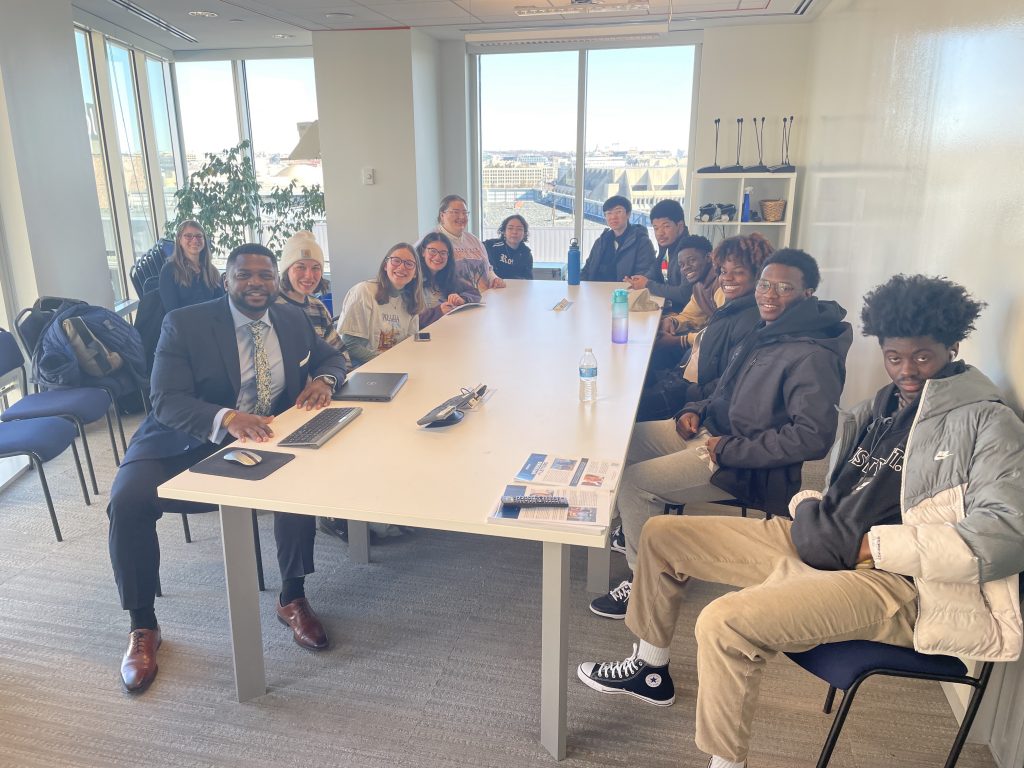Today we traveled to Washington D.C. to speak with Rev. David Street from Bread for The World. The mission of Bread for The World is to end hunger at a national and international level through changing policies. Within the organization they adjust their focus on a yearly basis, alternating between the ending of hunger nationally and internationally. During this year the organization is focusing on one important piece of legislation at the national level known as the farm bill.

The farm bill is reauthorized through congress approximately every five years and governs over an array of both food and agricultural programs. The farm bill is very expansive, covering a range of topics including commodities, conservation, nutrition, credit, rural development, research (food and agricultural), forestry, energy, horticulture, crop insurance, and other related issues such as labor safety and international food assistance.
The conversation surrounding the farm bill really resonated with me since I am a student farmer, SNAP benefit recipient, and a part of the student dinning committee on campus. Through the student dinning committee, I have advocated for students who are food insecure and those who have food allergies or restricted diets. I have already seen a change in our campus dining in terms of meal plans, increased plant-based options, closer evaluation of allergy signs, and increased stocking of the on-campus food pantry. During the conversation with David, he explained that a group of college students in conversation with Bread for The World aided in the visualization of expanding SNAP access for college students in this farm bill. This led to me realizing the impact that I or any college student could make on a national scale through similar work as a lobbyist.
Bread for The World focuses their efforts on three aspects oof the farm bill: nutrition, equity, and sustainability. Nutrition focuses on increasing access to healthy food through food assistance programs such as SNAP, WIC, and GusNIP. Equity aims to expand access for marginalized populations to various food programs and supports food sovereignty of indigenous communities. Sustainability aims to lower food waste and highlight the relationship between the climate crisis and food security. In this farm bill the organization is pushing for increased access to SNAP for college students and indigenous communities as well as increased access to GusNIP, an enhancement to SNAP benefits which can be used to purchase fresh fruits and vegetables from farmers markets. Bread for the World is also supporting increased agricultural research related to food insecurity and food recovery programs.
I think equity is a very important as historically BIPOC have been denied land access and are more likely to suffer from food insecurity. It is also important to recognize that there are many health issues both physical and mental that result from a lack of nutritional food access. These issues could be prevented through increased access to nutritional food such as fresh produce, this access is ensured through GusNIP. I felt inspired by this program and how it recognizes that people do not simply need access to food, but they need access to nutritional foods. This program aims to connect people who are food insecure with local farmers by promoting local/regional produce to its recipients when available.
Bread for The World offers a way for people to aid in the pursuit of ending hunger through a program called “Offering of Letters.” To support their mission all they ask is for you to hand write or email a letter to your congress members encouraging them to support a just and equitable farm bill for all. If you are so moved to write one of these letters a sample letter can be provided.